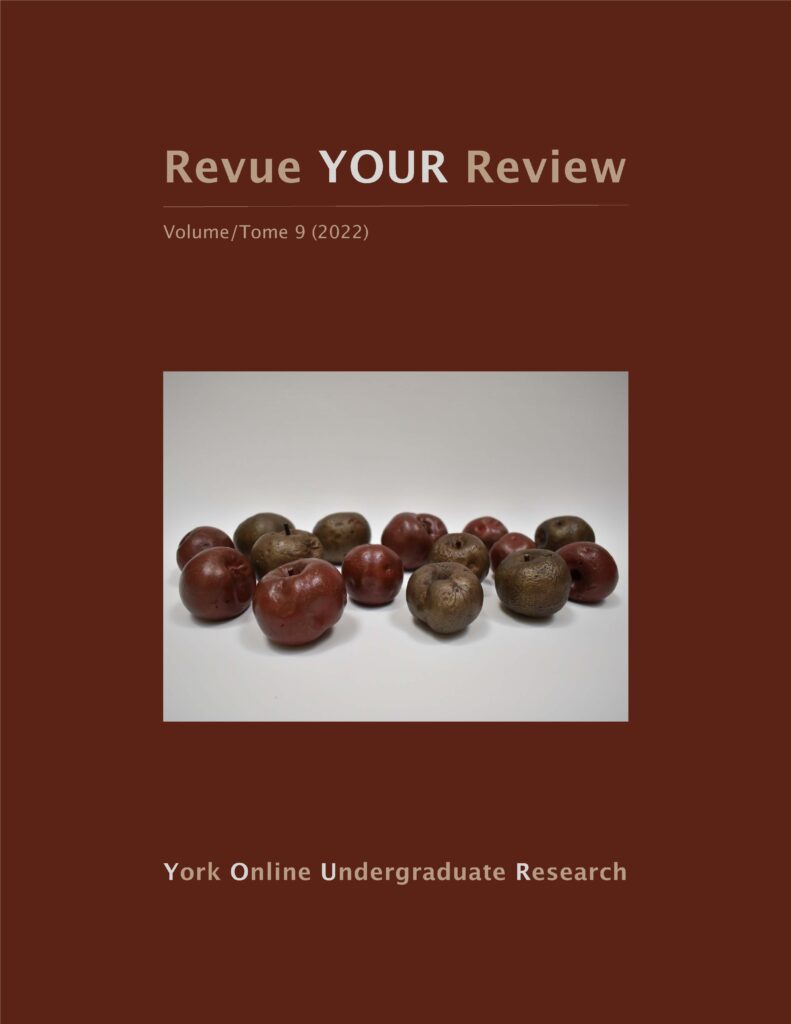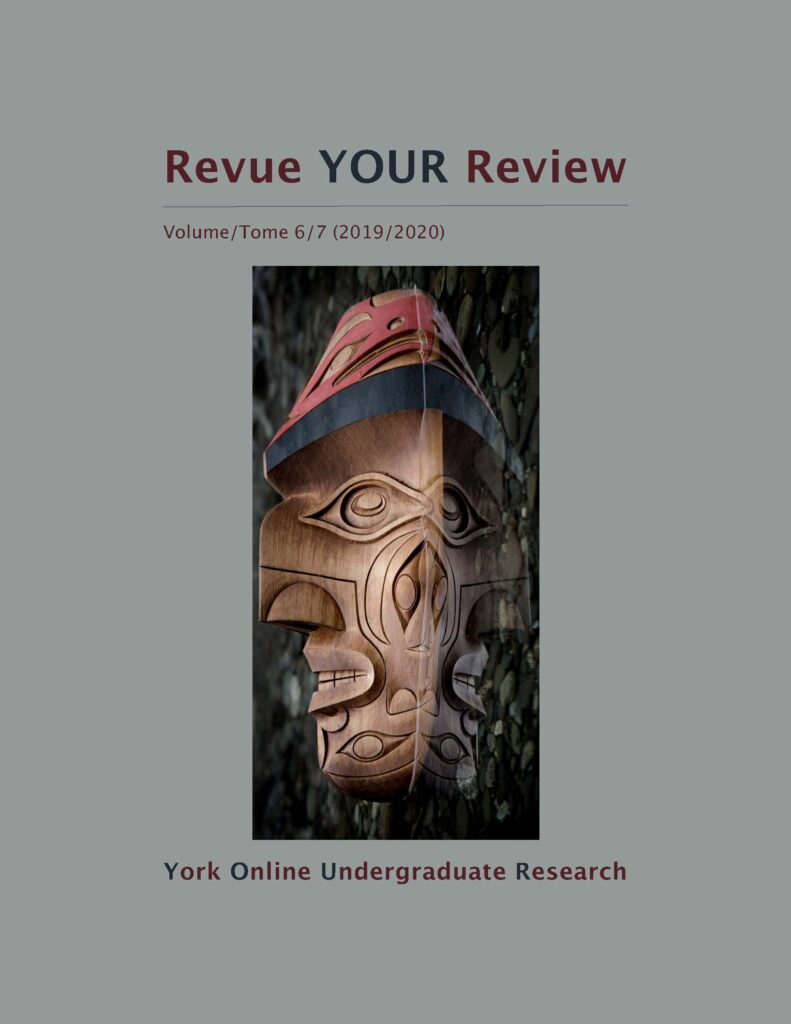York University’s interdisciplinary and peer-reviewed undergraduate research journal Revue YOUR Review (RYR) has published its ninth volume as part of its collaborative mission to promote experiential learning and open-access publishing.
Sponsored by York University Libraries in support of undergraduate research and in collaboration with the annual Undergraduate Research Fair and Art Walk, the journal’s focus is to provide faculty and librarian mentorship for undergraduate researchers and to guide them through the process of publishing in a peer-reviewed arena.
RYR gives voice to authors from traditionally underrepresented segments of the University community and highlights their innovative research.

In this volume, Dara Dillon provides a thought-provoking critique of Liberalism and its systemic failure to confront anti-Black racism, while discrimination and a history of pathologization of 2SLGBTQIA+ communities are the topics of articles by Jacob McGuire and the team of Ryan Yacknovets and Meaghan Landry, respectively. Ayeda Khan confronts the colonial legacy of Western medicine in India, while both Jacqueline Saunders’ and Hannah Santilli’s contributions analyze social inequities for people with disabilities. A collaborative effort from Alexandra Markwell, Danika Wagner, Andreja Stajduhar and Lucas Norton on the psychology of extroversion, competitiveness and humour rounds out the volume.
The volume’s editorial draws on a conversation between one of the journal’s co-editors, Kevin Reynolds, and the artist of the image borne on the cover of RYR’s Volume 8, Natalia Bonczek, reflecting on the possibility of nonbinary language in French. Volume 8’s cover artwork “Misster E” is a portrait of the homonymous alter ego of the artist, a nonbinary “gender-bending, glamorous drag king.” The conversation works through the challenges presented by the translation of the artist statement that describes the cover artwork. French is characterized by grammatical gender as a structural feature that not only challenges expressions of gender ambiguity, but that is entirely rooted in gender binarity. How does one reconcile a binary gender-based language with nonbinary, “gender-bending” identities? As a result, in the artist’s statement for Volume 8, unconventional orthographic means are used to assert the nonbinary identity of the artist in French. The dialogue that ultimately led to these complex decisions of translation is the subject of the co-authored editorial of Volume 9.
In addition to Volumes 8 (2021) and 9 (2022), the journal has released, retroactively, two previously unpublished editions from 2018. The combined issues in Volumes 4/5 and 6/7 are available on the journal’s website.


In his introductory editorial to Volume 6/7, “Stepping into Tomorrow,” Professor Emeritus Paul Delaney (Physics & Astronomy) writes to “citizens of the future” about the importance of scientific literacy and the courage it takes young scholars to go through peer review. The cover image for each of these volumes is the work of Cree-Métis artist and York alumna Marissa Magneson, who also contributed the editorial for Volume 4/5. In the editorial, Magneson reflects on her photograph “Frozen Chains of Childhood” and the brutal legacy of residential schools in Canada: “Like the swing in the cover photograph, many Indigenous children felt isolated, frozen, neglected, and immobile at these schools.”
Volume 6/7’s cover image, “Reflections,” symbolizes the coming-together of two cousins, Magneson and wood carver and Nuu-chah-nulth language activist Joshua Prescott, whose artistic collaboration reflects a gradual reclamation of their Indigenous culture and identity.
“While Frozen Chains of Childhood looks to a past where Indigenous peoples were not allowed to express their culture(s), Reflections looks to the future, as we carve a path forward where future generations know what it means to be Indigenous and are proud to share who they are,” says Magneson.
All volumes are available online.


